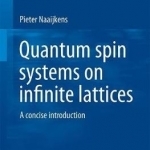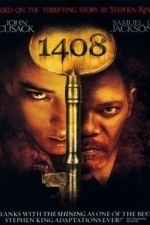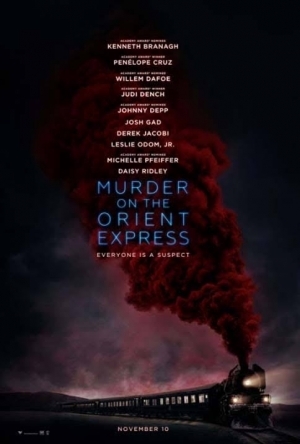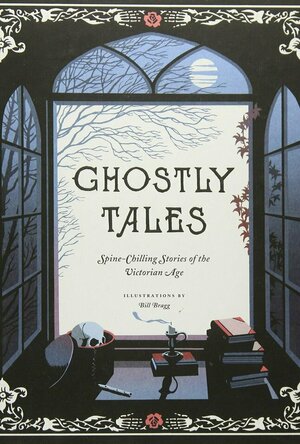
iTheory Driver Theory Test
Education and Games
App
Award-winning educational software with all of the questions and answers you need to pass your exam...

Introduction to Quantitative Methods in Business: With Applications Using Microsoft Office Excel
Michael J. Panik, Bharat Kolluri and Rao N. Singamsetti
Book
A well-balanced and accessible introduction to the elementary quantitative methods and Microsoft(R)...
Gareth von Kallenbach (980 KP) rated 1408 (2007) in Movies
Aug 14, 2019
While his books do well enough for his editors to be happy with his work, and for locales to be included in his next book, Mike lives a life of routine.
One a promising author, Mike abandoned his novels for his haunted travel guides, and a life of hotels and sparsely attended book signings.
While Mike is evaluating the numerous brochures sent to him by prospective topics, he notices a simple hotel post card that features the simple message “Do not stay in room 1408”. Intrigued, Mike attempts to book the room for a review, but is unable to as the room is no longer available to the public.
With the help of his editor and the legal staff, Mike is able to cover the mysterious room 1408 at the Dolphin Hotel in New York.
Upon his arrival, Mike is greeted by the hotel manager Gerald Olin (Samuel L. Jackson), who offers numerous incentives ranging from rare Brandy, to a penthouse suite if Mike will give up his request to stay in 1408.
It is learned that over 50 people have died while staying in that room and that nobody has even been able to last an hour before befalling some horrific tragedy. Mike is convinced that this is all just part of the hype and that Olin is simply trying to scare him off.
Despite the numerous pleads from Olin to reconsider, Mike insists upon staying in the room, and is soon alone in room 1408.
Upon entering the room, Mike finds it to be a cozy and well maintained room. At first nothing seems out of the ordinary, until a couple of bizarre things happen. Mike is at first convinced there is a member of the hotel staff in hiding, who is playing a trick on him, but soon, Mike realizes just how and why 1408 earned its reputation.
What follows is a serious of horrors that Mike is unable to escape from, despite his best efforts, and he must figure out the mystery of 1408 before it kills him.
The film is based on a short story by Stephen King and is one of the better adaptations of the author’s works. Briskly paced at around 90-minutes, the film is careful to setup the characters and locale, but once the bizarre starts, the audience is in for a thrill ride complete with twists, turns, and some bizarre and suspenseful moments.
Cusack does a masterful job of portraying the conflicted Mike, but never lets you lose sympathy for the man, and displays a very effective ability to blend action, horror, emotions, and pathos, as Mike walks a razor thin line between reality and chaos.
It is especially effective given the fact that Cusack has to carry large segments of the film on his own, without any co-stars in much of his scenes.
The film does lose some momentum in the final 20 minutes, but still rebounds nicely to come to an effective and memorable ending without overusing many of the hackneyed horror film staples.
That being said if chills are what you are looking for this summer, then make sure to check into ?”

trivago: Compare Hotels & Save
Travel and Reference
App
Plan your next vacation and discover the best hotels at the best prices when you search with...
Joe Julians (221 KP) rated The Disaster Artist (2017) in Movies
Jan 30, 2018
To start with, James Franco is perfect as the mysterious and downright bonkers Tommy Wiseau. His voice, his mannerisms, his almost childlike tantrum throwing approach to life, he manages to make an almost unbelievable man fully believable. He's backed up by a cast that commit to the roles, but other than Dave Franco, don't get a huge amount of time in the spotlight. That's not a criticism as such, by design the two central figures in this are Tommy and Greg Sistero- his friend and fellow budding actor.
I suspect if you are a "fan" of The Room, you'll likely get a lot more out of this than if you had little to know knowledge of the film it depicts the making of. It's a blast getting to see certain iconic scenes recreated for this and to hear the origin stories behind key lines- "you're tearing me apart, Lisa" being one such moment that took me by surprise. The original film is a messy nonsensical experience and it's fun to see that almost everyone working on it viewed it as such even when it was being made. Everyone except Tommy that is.
Where things get a little murky for me is with how you are supposed to feel by the time the brilliant end credits roll (there's exact recreations of certain moments played side by side that are great fun.) It seems as though we are meant to be inspired by Tommy and what he has achieved, like in the end this is supposed to be a feel-good movie about never giving up on your dreams. That's all well and good, but Tommy Wiseau doesn't come across particularly well in this. He's a temper tantrum throwing and at times scary man to be around. One scene in particular during the shooting of the 'belly button sex scene' portrays him as a pretty horrible man, one that gets his way by being somewhat of a bully. This isn't addressed again fully and it's hard to feel like cheering him on by the time the big premiere screening rolls round. There's also his about face when it comes to claiming the movie was meant to be a comedy- something nobody believes. On the one hand, it's a smart move to take what he has and run with it, but there's also something sad about him not having something he cared so passionately about be received in the way it was intended. This is something else that is glossed over, but then Wiseau would never speak so candidly to give the writers anything to work with.
Overall this is a great movie and a fascinating watch. Would highly recommend.
Acanthea Grimscythe (300 KP) rated The Graveyard Apartment in Books
May 16, 2018
Horror is my ultimate weakness. Anything that has the potential to be spooky or scary, I am likely to gobble up without a second thought: or, at the very least, take the time to sit down and read or watch. After reading the synopsis for Mariko Koike's The Graveyard Apartment, I eagerly applied for the opportunity to review a copy of the book prior to release. Now that I've finished devouring it, I find myself with many unanswered questions.
The Graveyard Apartment takes place in the late 80s, and was, in fact, originally published in 1986. It tells the tale of a small family, the Kanos, that has made their first real estate purchase: a comfortable, two bedroom apartment located on the eight floor of a new apartment building that, as the book's title indicates, is located near a graveyard... and a temple... and a crematorium. Apparently that's not enough to warn off potential buyers though, because the Kanos are not the only ones duped into purchasing one of the fourteen apartments. Once they've settled in, strange occurrences begin and they quickly find themselves in a living nightmare.
Beginning with the characters, I find nearly all of them to be unlikable in one way or another, with the exception of the daughter, Tamao. Her parents, Misao and Teppei Kano, strike me as extremely self-centered and one-dimensional, as do her aunt and uncle, Naomi and Tatsuji. Their downstairs neighbors, the Inoues, are precisely what you'd expect of a more outgoing family, and the managers of the apartment are rather dry in comparison. I felt little to no sympathy at any point for anyone other than the daughter, the dog, and the finch and for this, especially in something that has been labeled a psychological thriller, is extremely disappointing. Without being able to form a connection to the characters, I tend to find it difficult to actually care about what happens to them, and so upon the conclusion of the book, I simply shrugged and closed my Kindle app.
The story itself has a lot of potential, and yes I am aware that is a word I throw around a lot in my reviews. When I look at a plot, I tend to form my own thoughts regarding what could happen, and a lot of times that does lead to me being let down. For instance, in The Graveyard Apartment we learn that Misao is Teppei's second wife, the first having been lost to tragedy. Though Teppei's first wife, Reiko, is mentioned very often in the book, and made to seem as if there is a key role to be played by her, there actually isn't: it's all useless information that has been thrown out to the reader, but has no real connotation on the story. Likewise, Misao discovers that there had originally been plans to build an underground mall in the area back in the 60s. Given the strange things that happen throughout the book, one might expect to see and learn a lot more about this supposed mall and the aftermath of its construction having been canceled. We don't. Again, it is an element to the story that is not fully fleshed out, even though it is clearly a major factor in the history of the apartment building that the Kanos have moved into.
As if those two players weren't enough of a disappointment, the book does not come to a conclusion, and for me this is a disappointment. I don't care much for happy endings; in fact, I rather prefer unhappy endings. The Graveyard Apartment robs us of any sense of finality, though, and in truth fails to draw the story to a true close. As a reader, we can surmise the outcome based on the book's epilogue, but that's about as much we can do. We can figure out what happened to the Kanos and their fate, but we do not learn why. Instead, Koike continues to hint at a malevolent being haunting a recently built apartment complex whose origins are unknown, and whose origins no one really seems to be overly curious about. Sure, they're scared, but they don't really seem to care beyond that. There wasn't any shortage of clues either, as to why the place may have been haunted; only a lack of motivation in regards to finding out why that extends beyond Teppei's initial apprehension.
I really, truly can't wrap my head around how much was wasted in this book. It was like watching a B-rated horror flick where someone forgot to tie up the loose ends. Honestly, I would have liked to see more revealed regarding Reiko and the failed underground mall.

Quantum Spin Systems on Infinite Lattices: A Concise Introduction
Book
This course-based primer offers readers a concise introduction to the description of quantum...
Gareth von Kallenbach (980 KP) rated Murder on the Orient Express (2017) in Movies
Jul 11, 2019
For those unfamiliar with the novel, or the 1974 and 2001 adaptations, Murder tells the story of, well… a murder. On a train. It’s really a lot more than that. Branagh portrays Hercule Poirot, a famed Belgian detective who is looking forward to some time off. But during his travels, a most unfortunate thing happens. Two things actually. Someone is murdered aboard the train he is traveling on, the Orient Express (naturally). And the murderer would’ve gotten away free and clear had storm not caused an avalanche, which thanks to a derailed engine, caused the train to become stuck and the body to be discovered. Poirot’s friend, Bouc (Bateman), runs the train and requested that Poirot solve the mystery before the police arrive in fear of someone innocent being accused, and to save himself from a heyday with his father. Can Poirot find out who is the killer between the star-studded cast?
I’ve read the novel. Seen both adaptations. This film blows those earlier adaptations out of the water. There is no contest here. Now clearly, nothing can beat the book. But Murder is about as great a film you can get in the murky land of Hollywood these days. As mentioned, Branagh directed and starred in the film, which he shot on 65 mm. The last time he did this was with Hamlet in 1996. It looked good then, and it looks even better now. With eye-popping visuals throughout the entirety of the film, and a masterful soundtrack that seamlessly blended with the tones and themes of each scene, the film is a modern masterpiece.
It wasn’t without its faults. (Most) every film has them. And there are a lot of people who are upset with Branagh’s portrayal of Poirot, particularly the representation of his eccentric facial hair. I am not one of those people. I believe it, along with other amazing moments, lent a bit of humor to the movie to break up what should otherwise be, and is, a serious whodunit mystery. Also, I felt they changed a few things in the adaptation that didn’t necessarily need to be changed.
I found it hard to sit and write about the film though. Given the nature of a great mystery, I can’t tell you too much about it without risk of giving out crucial details to the plot and outcome. So I will leave you with this, boys, girls, and everything in between and beyond… with a great and talented cast (bravo to Michelle Pfeiffer in particular) who nailed home their characters, to great visuals, and a great score, this movie is definitely one you want to catch.
Hadley (567 KP) rated Ghostly Tales: Spine-Chilling Stories of the Victorian Age in Books
Jan 20, 2021
Since this is a short story collection, I will list the stories with a short synopsis and what I liked and disliked about them.
"Oh, Whistle, and I'll Come to You, My Lad" by M.R. James
A professor decides to go on vacation to work on his golf game while doing a little side work in the town's archaeology, but when he digs up an old whistle and blows into it, he instantly regrets what the whistle brings.
Liked: the buildup to the climax was done masterfully, and the superstition that was used as the premise of the story
Disliked: that the ending is never explained
"The Old Nurse's Story" by Elizabeth Gaskell
When a governess and her ward are taken to a haunted house, they found out that everyone has to pay for their misdeeds.
Liked: the perfect example of what Victorian ghost stories were
Disliked: Nothing; I really enjoyed this one
"The Signalman" by Charles Dickens
A railroad signalman tells a co-worker that he is seeing a ghost that warns him of future accidents, but his co-worker can't tell if he's telling the truth or losing his mind.
Liked: an excellent ghost story; I wish it were an entire novel
Disliked: nothing
"The Body-Snatcher" by Robert Louis Stevenson
When a medical student realizes that the 'donated' bodies are murder victims, he's not so sure he can live with the consequences.
Liked: the ending wasn't predictable
Disliked: at the start, there's a little confusion among who is who
" The Captain of the Pole-Star" by Sir Arthur Conan Doyle
A group of whalers are stuck in the middle of the ocean because of ice burgs, but the ice is the least of their problems when they begin to hear and see supernatural things out on the ice.
Liked: the plot of the story was really good
Disliked: the run-on sentences, some of the accents were hard to decipher, and the ending wasn't explained
"The Phantom Coach" by Amelia B. Edwards
A young man loses his way while on a hunt, but soon finds help with an old man that is convinced the supernatural is real, and when he senses the young man does not, he puts him up against forces from the other side.
Liked: the story never lulled, and the descriptions of the undead were amazing
Disliked: nothing, I thought the story was really good
"The Screaming Skull" by F. Marion Crawford
When the friend of a family finds a skull in the latter's home, he begins to question whether or not the husband murdered his wife.
Liked: I love that this story is actually based off an urban legend
Disliked: the way the author kept breaking away from the story to talk to the audience; it caused the flow of the story to stop
Overall, the Victorian-era authors knew how to write a ghost story. I absolutely loved this collection of short stories. I highly recommend this book to people who love a good 'ol fashioned ghost story (not the gory ones we have today).

The Elements by Theodore Gray
Book and Education
App
Of all the periodic table apps, there is only one which Stephen Fry described as “Alone worth the...




